Nuts About Health? 9 Nuts You Should Avoid And 10 That Actually Do Your Body Good
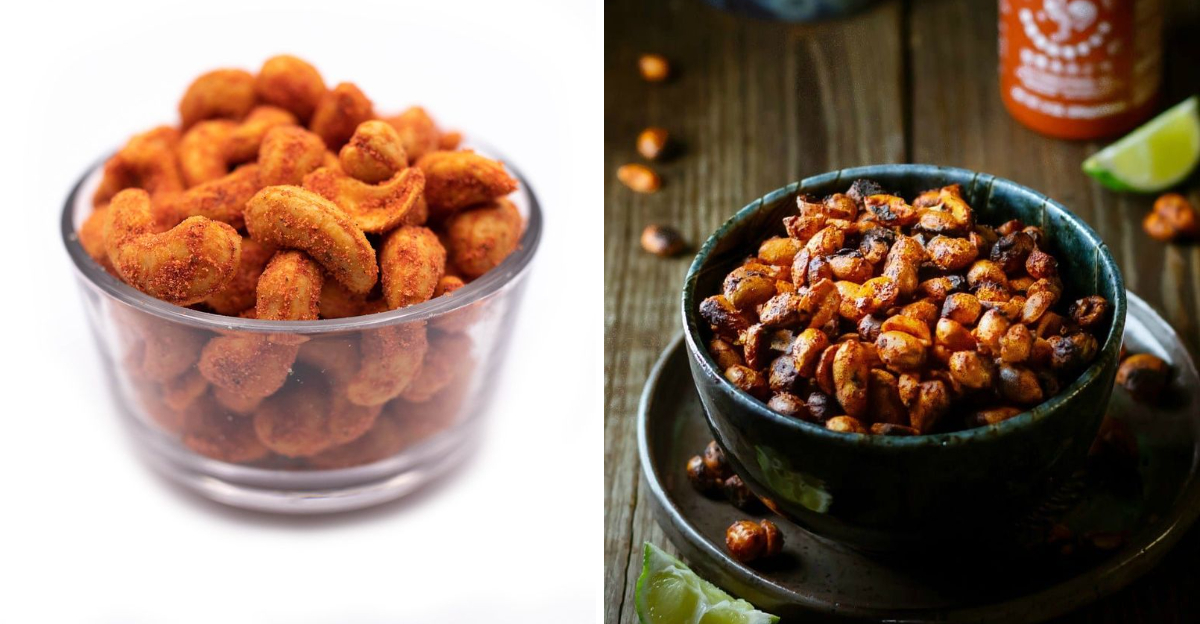
Nuts are a popular snack due to their nutritious benefits, but not all nuts are created equal. In this blog post, we dive into the nuts that you should be cautious about and those that can actually improve your health. From sugar-laden treats masquerading as healthy snacks to truly beneficial nuts, we explore the intricacies of nut consumption.
1. Honey-Roasted Peanuts
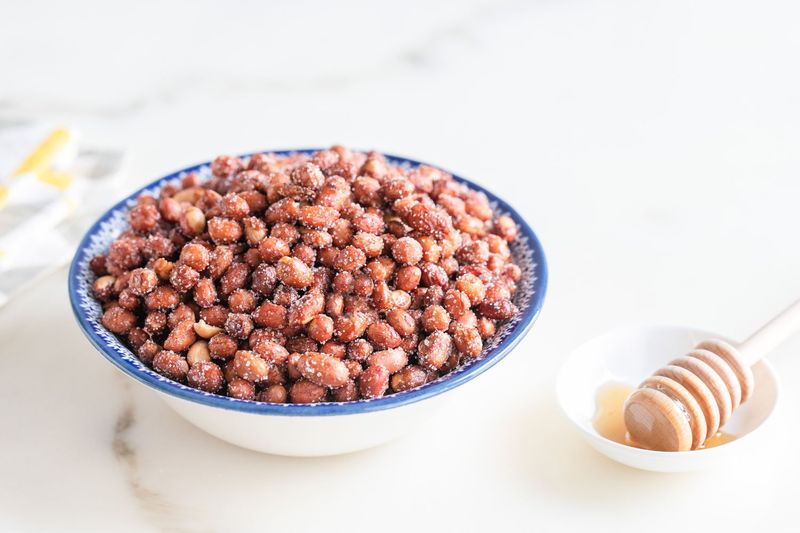
Honey-roasted peanuts charm with their sweet allure. Yet beneath their glossy exterior lies a sugary surprise. Coated generously in sugar, salt, and sometimes processed oils, these transform from a simple snack into a candy-like indulgence. The added sugars and oils can overshadow the natural benefits of the peanut, making them a less-than-ideal choice. For those watching their sugar intake, these treats are more deceptive than delightful. Their appealing crunch may entice, but consider opting for a healthier nut snack. Remember, what glitters is not always gold, especially in the nut world.
2. Chocolate-Covered Almonds
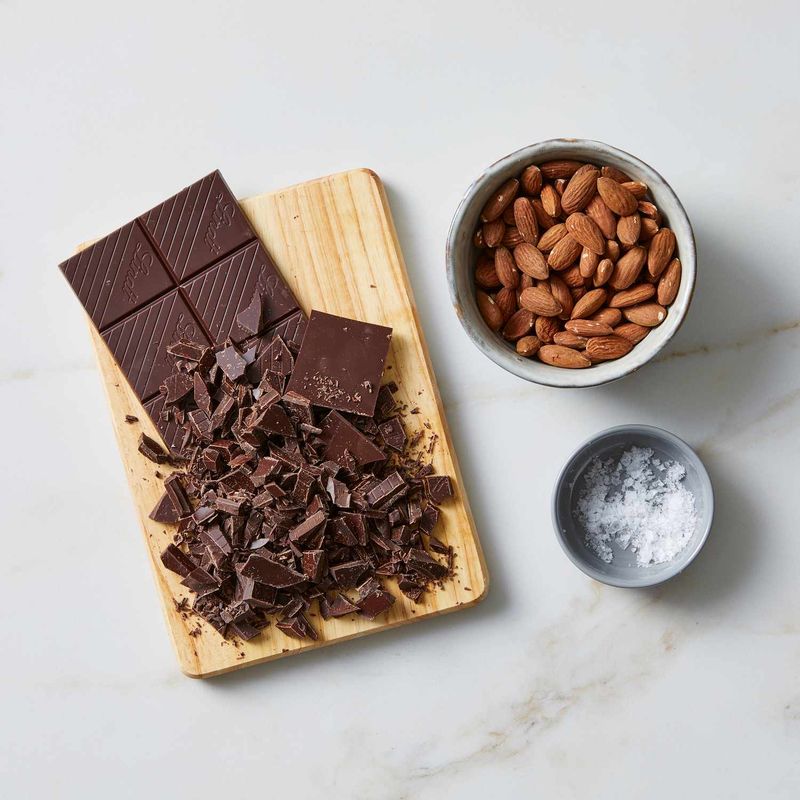
Almonds, on their own, are a powerhouse of nutrition. However, when enveloped in creamy milk chocolate, they tread into dessert territory. The added sugars and fats can derail their health benefits. While a handful might seem harmless, it’s easy to overindulge. The chocolate coating is not just a sweet touch; it’s a nutritional compromise. Those seeking weight management or reduced sugar intake might want to bypass these tempting morsels. Indulge sparingly if you must, but remember: moderation is key.
3. Flavored Cashews (Buffalo, BBQ, etc.)
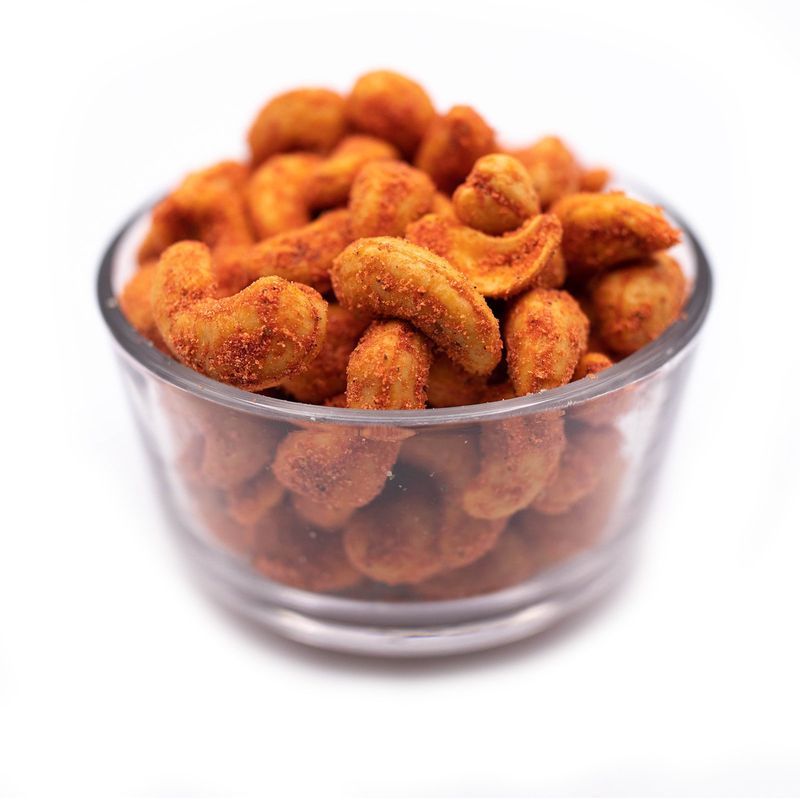
Flavored cashews offer a burst of taste, yet often at a nutritional cost. These varieties typically include artificial flavorings and a hefty dose of sodium. While the zest and spice might please the palate, they can negatively affect blood pressure and overall health. The allure of bold flavors can make it easy to consume more than intended. Over time, these small indulgences add up. Consider sticking to raw or lightly roasted versions for a healthier snacking choice without the extra sodium.
4. Mixed Party Nuts (with “Seasoning”)
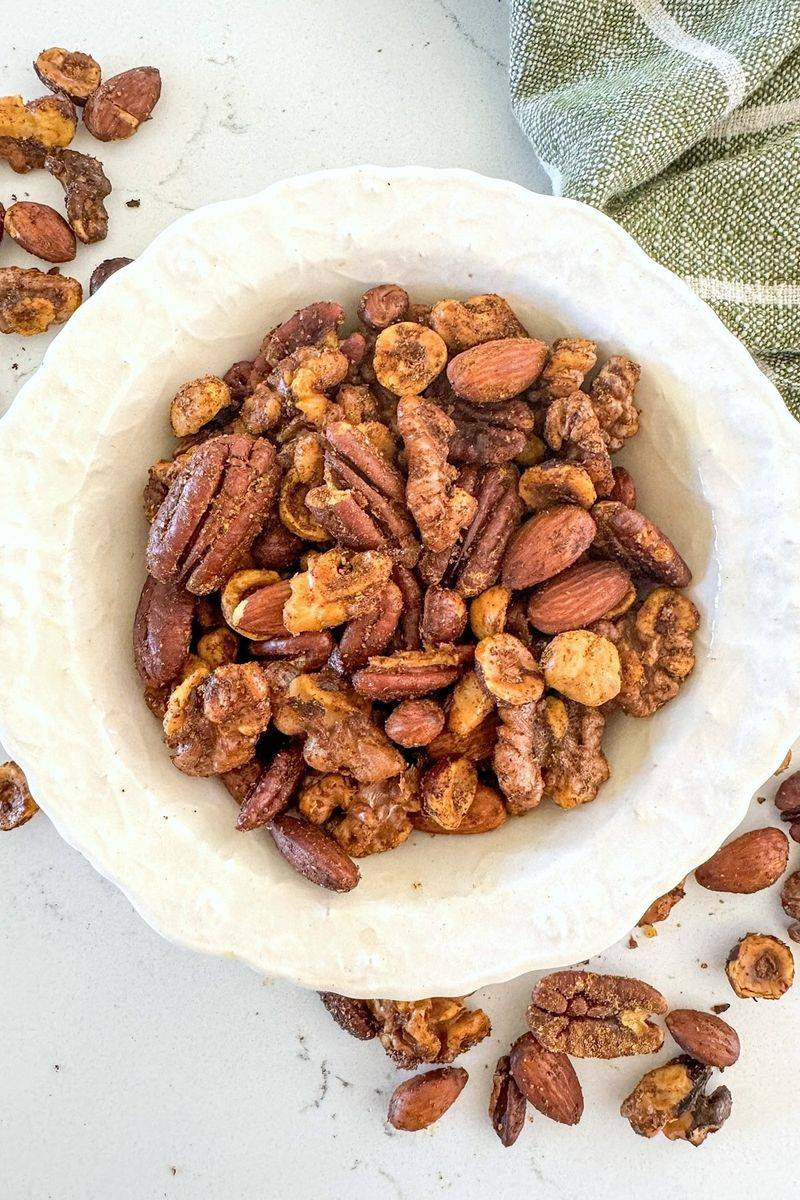
Mixed party nuts, with their vibrant seasoning blends, promise a flavor fiesta. Yet, that seasoning often conceals MSG, added sugars, and mystery oils. These embellishments transform a potentially healthy snack into a sodium-packed option, likely exceeding daily limits. While they’re festive and seemingly harmless, the hidden ingredients can sabotage a balanced diet. For heart-conscious individuals, these are better left on the party table. Choose unsalted or lightly seasoned nuts for a healthier gathering.
5. Wasabi Peas & Coated Peanuts
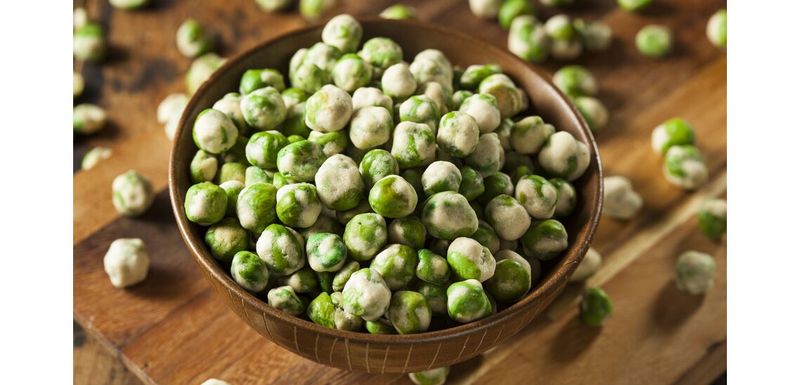
Wasabi peas and coated peanuts deliver an exhilarating crunch, but with hidden downsides. These snacks are more about the processed flour coating than the nut itself. High in sodium, they can contribute to elevated blood pressure if consumed in excess. The spicy kick from wasabi may excite, yet it’s the processed ingredients that dominate. For fans of crunchy snacks, consider exploring alternatives with less processing and sodium. Remember, the crunch should come from the nut, not the coating.
6. Salted Macadamia Nuts
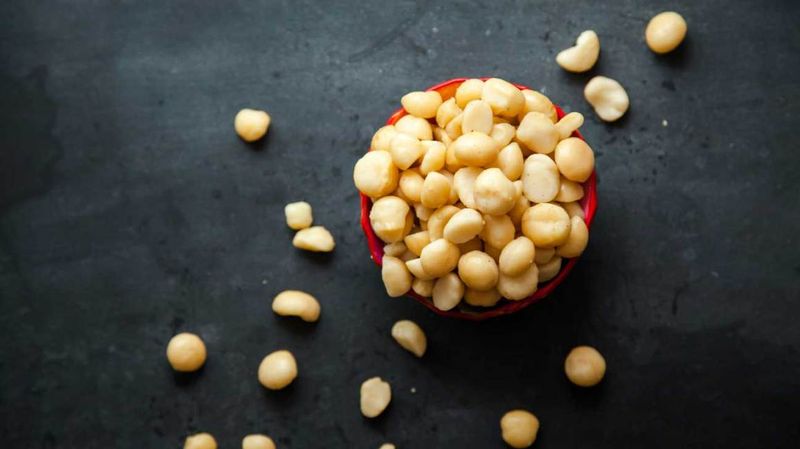
Macadamia nuts possess a luxurious richness, but when salted, they pose a caloric challenge. Though naturally high in healthy fats, the additional salt can be detrimental, especially for those monitoring sodium intake. Their creamy texture tempts the taste buds, yet it’s easy to consume more than necessary. While they can be part of a balanced diet, choosing unsalted versions is wiser. Embrace the natural flavor of macadamias and enjoy them sparingly.
7. Yogurt-Covered Raisins/Nuts
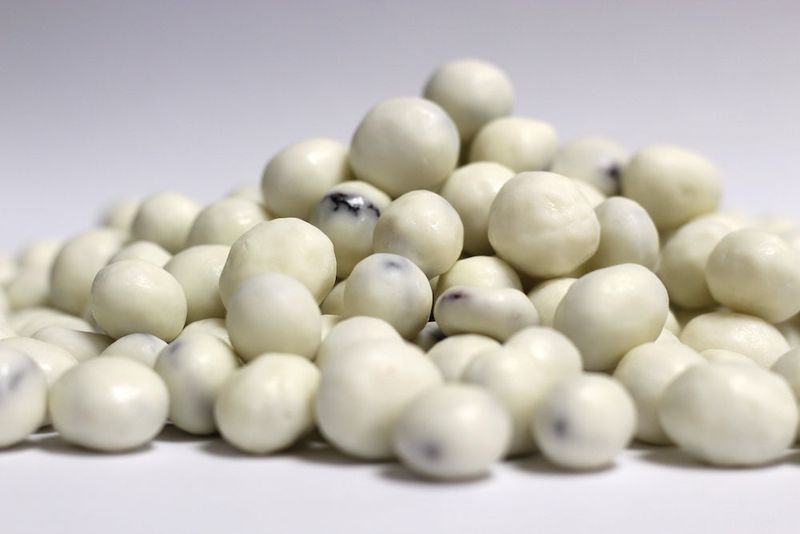
Yogurt-covered raisins and nuts offer a seemingly healthy veneer. However, the “yogurt” coating is typically sugar and palm oil masquerading as a wholesome choice. While they might seem like a smart snack, the added sugars and fats overshadow the natural benefits. For those aiming to reduce sugar intake, these are not the best option. A closer look reveals that the nutritional value is often compromised by the coating. Consider opting for plain versions if health is the priority.
8. Beer Nuts
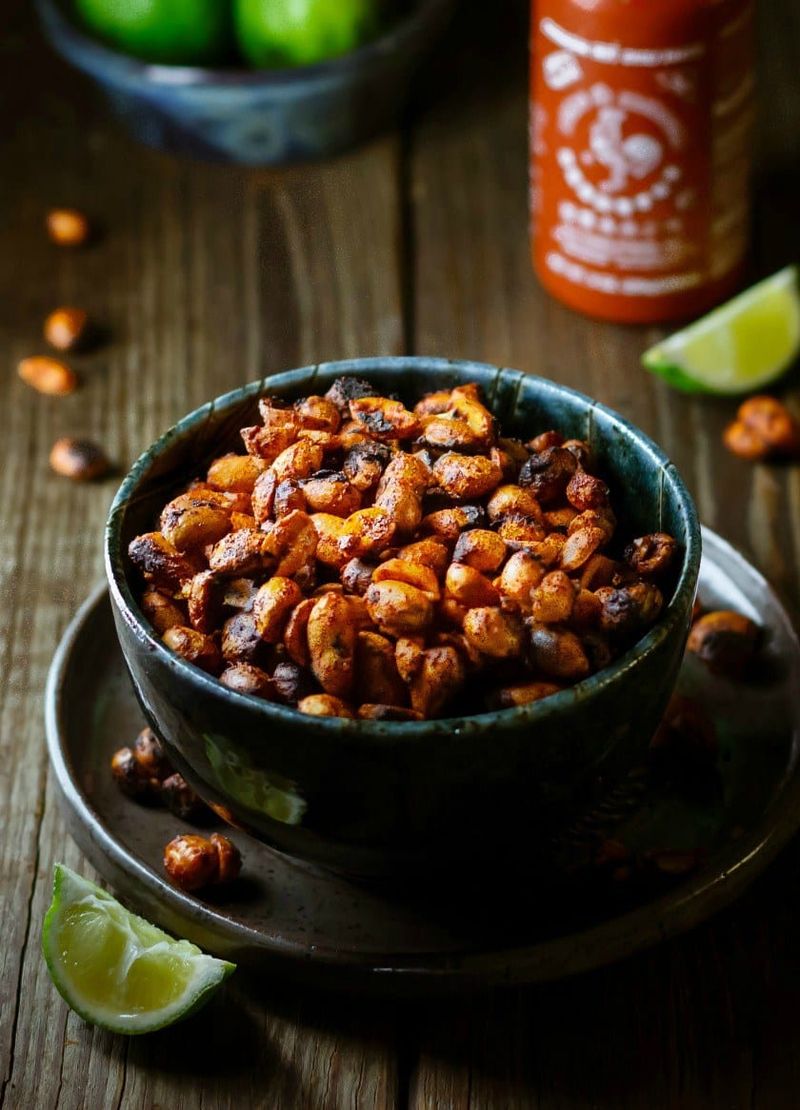
Beer nuts, with their glossy, sweet-salty coating, complement a cold beverage perfectly. Yet, they’re heavily processed and often laden with sugars and salts, turning a casual snack into a health concern. The enticing shine and crunch can mask a less favorable nutritional profile. Those mindful of their heart health should be wary, as these nuts might not align with their dietary goals. For a healthier snack, consider nuts with natural coatings or spices instead of sugar glazing.
9. Peanut Butter-Filled Pretzels

Peanut butter-filled pretzels combine two popular snacks into one enticing bite. Yet, this fusion often leads to a mix of refined carbs and processed peanut paste. While they offer a quick energy boost, they lack substantial nutritional value. The processed nature of the filling can overshadow any potential benefits. For those striving for a balanced snack, this might not be the best pick. Consider whole foods for a more nutritious option, as this snack might derail healthier eating efforts.
10. Almonds
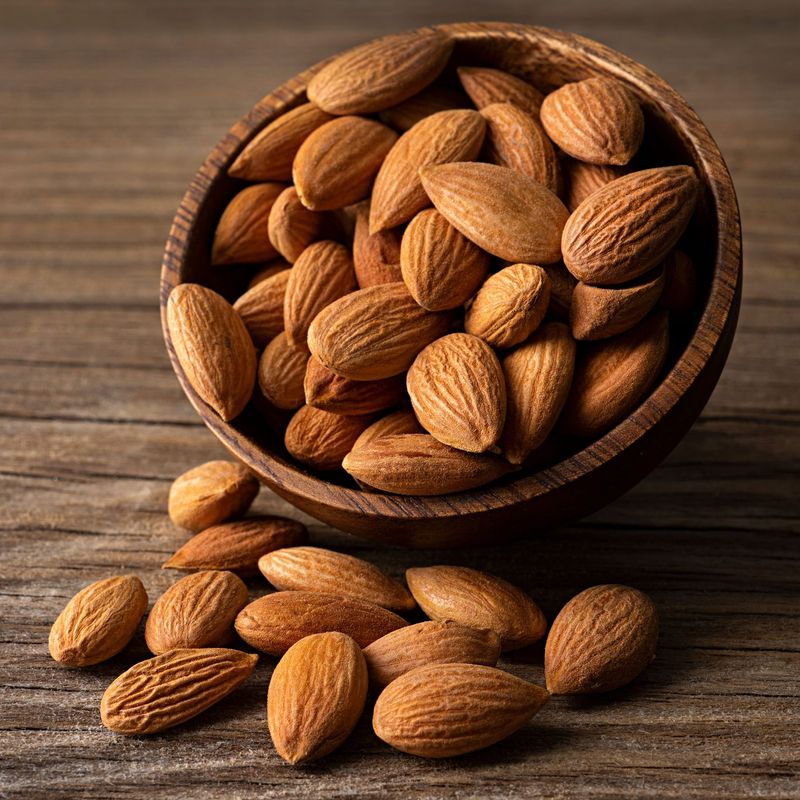
Almonds stand out as a nutritious choice, offering vitamin E, fiber, and magnesium in every bite. They’re celebrated for their heart-health benefits and their ability to keep hunger at bay. Resilient and robust, almonds can be enjoyed raw, roasted, or even as almond butter. Their versatility extends to various culinary applications, from snacking to baking. For those seeking a nutrition boost, almonds provide a compelling option. Embrace the natural goodness of almonds as part of a healthy diet.
11. Walnuts

Walnuts, with their brain-like shape, are celebrated for boosting brain health. Rich in plant-based omega-3 fatty acids, they offer anti-inflammatory benefits. Their earthy flavor makes them a versatile ingredient in both sweet and savory dishes. For those looking to enhance cognitive function and fight inflammation, walnuts are a top choice. Enjoy them on their own, in salads, or baked into breads for a wholesome touch.
12. Pistachios
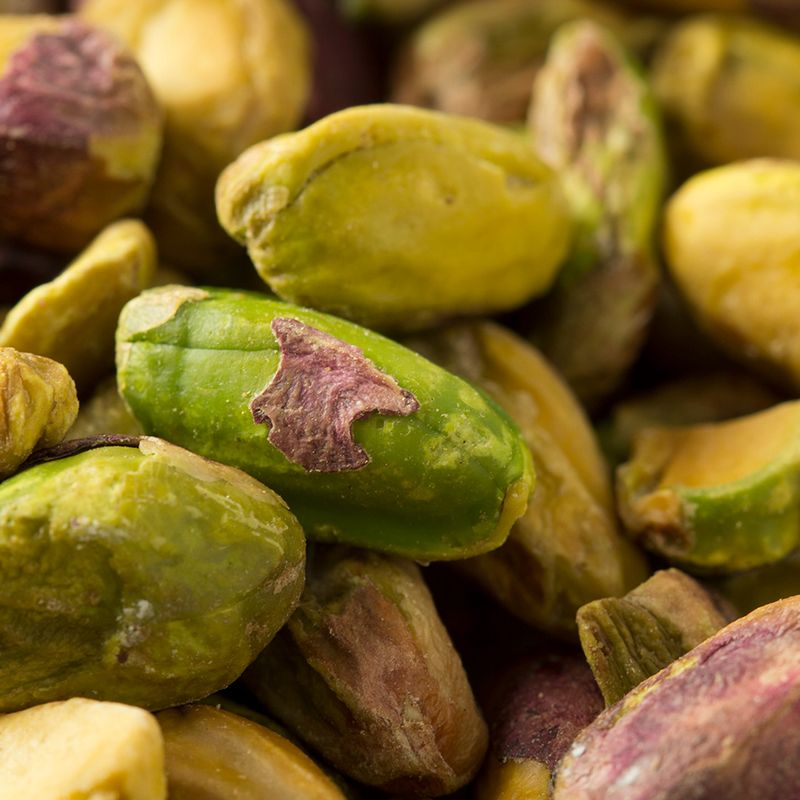
Pistachios offer a unique snacking rhythm, as their shells slow consumption, promoting mindful eating. High in protein and antioxidants, these little green gems pack a nutritional punch. Their slightly sweet flavor complements both savory and sweet dishes. For those focused on portion control and weight management, pistachios are an excellent choice. Embrace the ritual of cracking open a pistachio for a satisfying and healthful experience.
13. Brazil Nuts
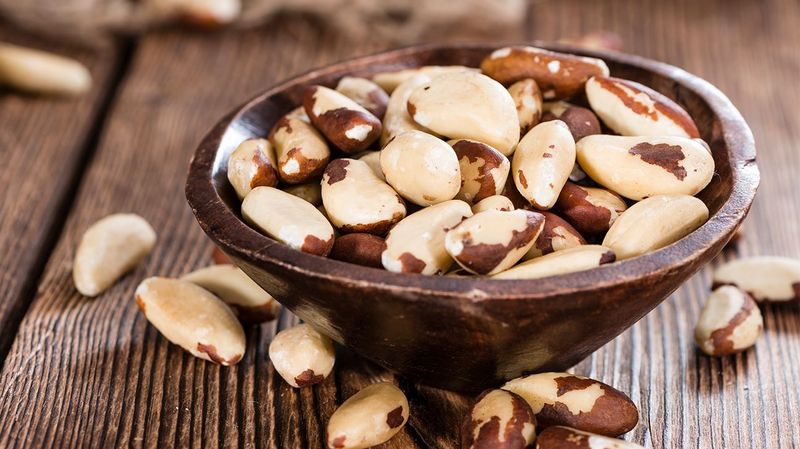
Brazil nuts, though large, require moderation. Just one or two can fulfill the daily selenium requirement, a mineral crucial for thyroid health. Their rich, buttery flavor is a delight, but overconsumption can lead to selenium toxicity. For those seeking a mineral boost, Brazil nuts offer a unique proposition. Enjoy them in small amounts to reap the benefits without the risks. These nuts exemplify the adage, “less is more,” when it comes to healthy snacking.
14. Cashews (Raw or Lightly Roasted)
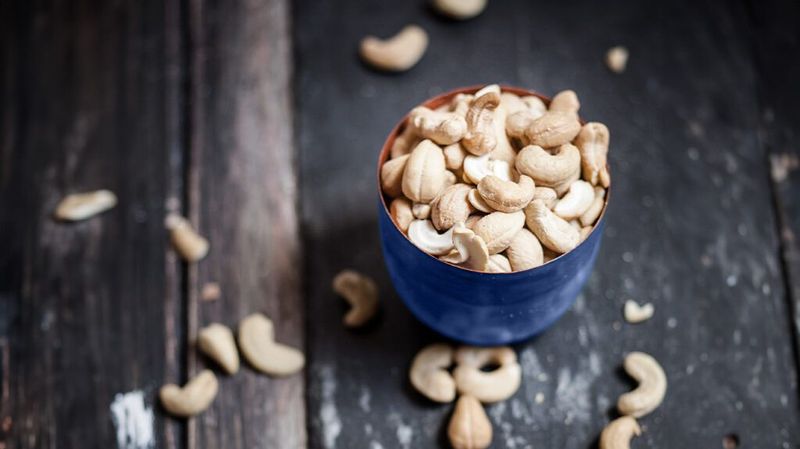
Cashews, with their creamy texture, provide a satisfying snack rich in iron and zinc. When consumed raw or lightly roasted, they maintain their nutritional integrity, offering a healthier option. Avoid heavily salted or flavored versions to enjoy their natural goodness. For those mineral-conscious, cashews are a delightful addition to a balanced diet. Their subtle sweetness and versatility make them a culinary favorite, whether in savory dishes or as a standalone snack.
15. Hazelnuts
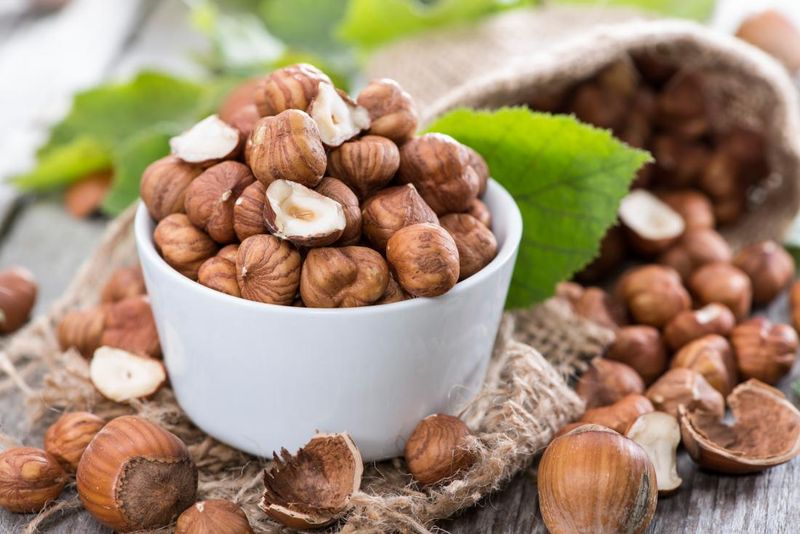
Hazelnuts exude a natural sweetness, often associated with the beloved Nutella spread. Rich in healthy fats, antioxidants, and vitamin E, they offer nutritional perks in every small bite. Their robustness makes them a versatile ingredient, from smoothies to granola. For those seeking heart health and a sweet nutty flavor, hazelnuts provide a charming option. Enjoy them raw, roasted, or blended into your favorite recipes for added flair.
16. Pecans
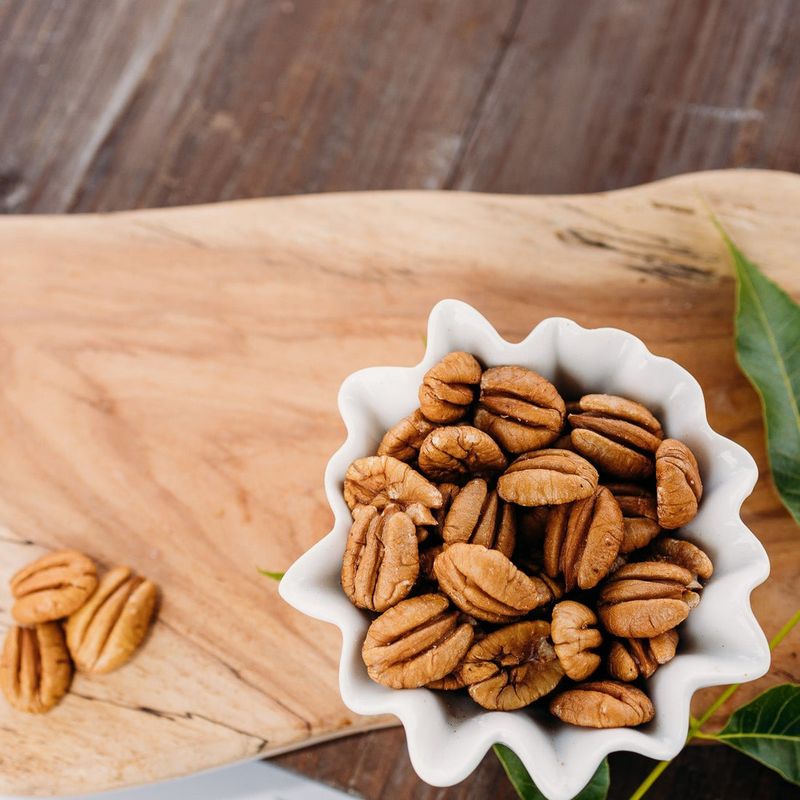
Pecans, with their rich, buttery flavor, are more than just a pie filling. Packed with monounsaturated fats and fiber, they support heart health and digestion. Their natural sweetness makes them perfect for both sweet and savory dishes. For those seeking a flavorful, nutritious snack, pecans offer a compelling choice. Incorporate them into your diet for a satisfying crunch and nutritional boost.
17. Pine Nuts
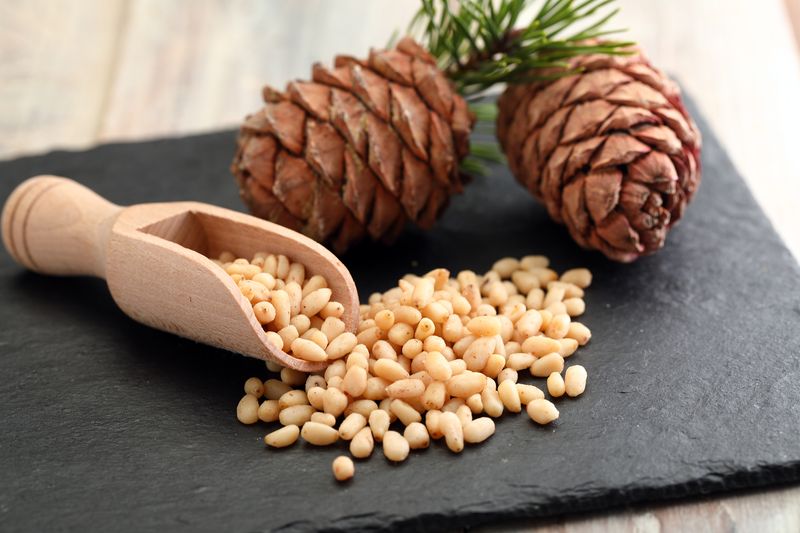
Pine nuts, though small, offer a wealth of nutrients. High in iron and magnesium, they add a nutty flair to dishes like pesto and salads. Their delicate flavor enhances a variety of cuisines. For those seeking a rich source of minerals, pine nuts are an attractive option. Incorporate them into Mediterranean dishes for an authentic touch and a healthful boost.
18. Chestnuts
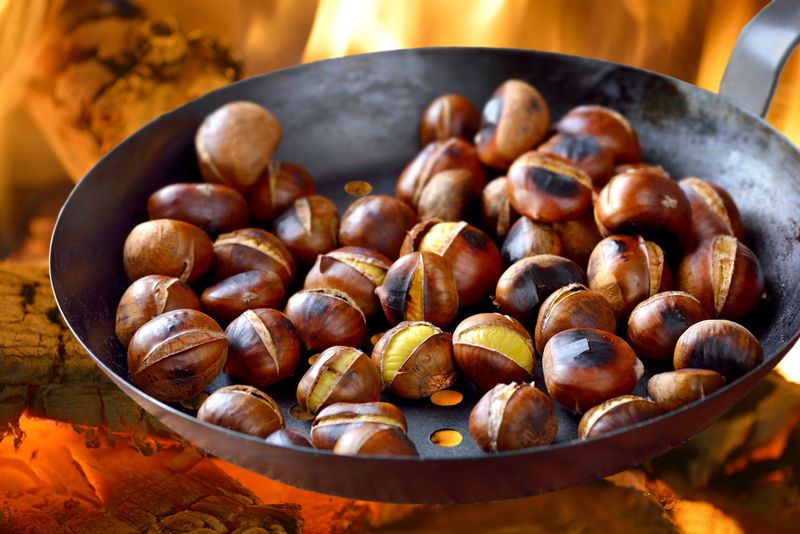
Chestnuts, with their unique low-fat profile, stand apart from other nuts. High in vitamin C, they offer a surprising nutritional twist. When roasted, their sweet, earthy flavor becomes pronounced, making them a winter favorite. For those seeking a lower-calorie nut option, chestnuts deliver both taste and health benefits. Enjoy them roasted for a delightful seasonal treat that’s both nutritious and flavorful.
19. Peanuts (Dry Roasted, Unsalted)
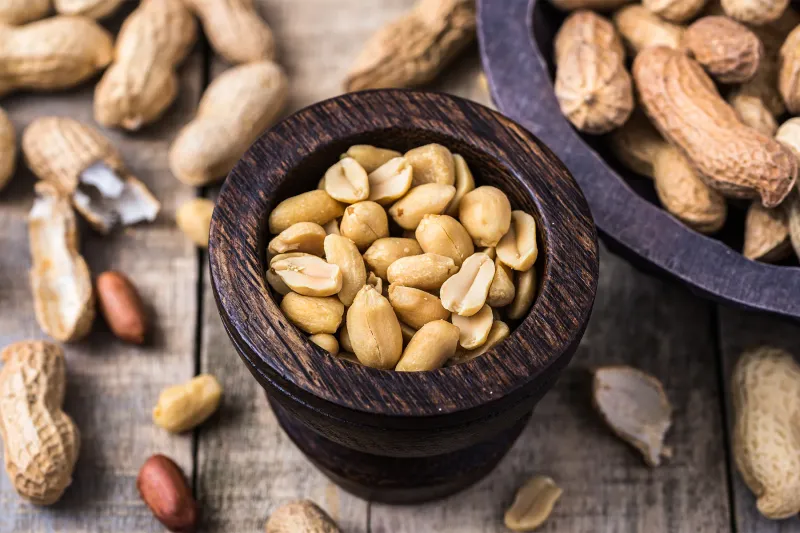
Peanuts, technically legumes, hold a cherished place in snacking culture. When dry roasted and unsalted, they offer a protein-packed, folate-rich option. Their simple preparation highlights their natural flavors, free from added sugars or oils. For those seeking an affordable, nutritious snack, dry roasted peanuts are a reliable choice. Enjoy them as a standalone snack or incorporated into various dishes for added texture and nutrition.
